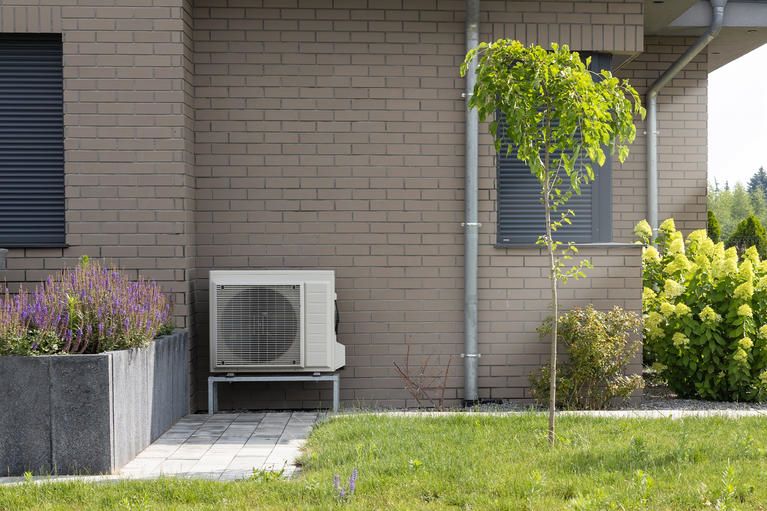
Colorado Heat Pump Tax Credits
Colorado Heat Pump Tax Credits
Discounts on heat pump installation to make heating and cooling your home and water more efficient and affordable.
Funding Overview
Type: Upfront discount on installation (tax credit can only be claimed by registered contractors offering discount)
Eligibility: Anyone installing a qualified heat pump in Colorado through a registered contractor
Amount: Varies based on heat pump type
Coloradans can take advantage of state incentives to install heat pumps for space heating and cooling and water heating. Heat pumps are a highly efficient technology that can save Coloradans money on energy costs, while improving indoor air quality and reducing greenhouse gas emissions from buildings.
Contact Information
Amanda Morris, amanda.morris1@state.co.us
Discount Eligibility
All Colorado residents, businesses, and other organizations who install an eligible heat pump through a registered contractor may receive a portion of the tax credit (at least 33.33%) as a discount at the time of installation.
See list of registered contractors
Note: Contractors on this list are registered with the state as eligible to receive the state heat pump tax credit and must pass along the discount to the customer for each tax credit they claim. Inclusion on this list does not represent the state’s endorsement of the performance of any specific contractor.
We recommend reviewing the Customer Checklist below to make sure your heat pump installation is eligible for the Heat Pump Tax Credit Discount.
View Heat Pump Tax Credit Discount: Customer Checklist
Customers do not need to file any paperwork to receive the discount since the tax credit is claimed by the installing contractor.
Eligible Heat Pumps
The heat pump tax credit is available to install the following types of heat pumps or other technology:
- Air-source heat pump
- Ground-source heat pump
- Water-source heat pump
- Combined-source heat pump
- Heat pump hot water heater
- Thermal energy network
- Variable refrigerant flow heat pump system
All heat pumps must be Energy Star certified. Air source heat pumps must be Air-Conditioning, Heating, and Refrigeration Institute (AHRI) ‘matched’ systems. Heat pumps for space heating/cooling must be designed to meet at least 80% of annual heating needs. More detail about specific requirements for each type of technology is available in the Heat Pump Tax Credit Frequently Asked Questions.
Tax Credit and Discount Amounts
Registered contractors who claim the tax credit are required to provide a discount off the cost of installing eligible heat pump technology. The tables below outline the minimum required discount a customer will receive for heat pumps installed in 2026, as well as from 2024-2025.
| Heat Pump Type | Tax Credit Amount | Minimum Customer Discount |
|---|---|---|
| Air-Source | $1,000 | $333 |
| Ground-source, water-source, or combined-source | $2,000 | $667 |
| Water Heater | $250 | $83 |
| Heat Pump Type | Tax Credit Amount | Minimum Customer Discount |
|---|---|---|
| Air-Source | $1,500 | $499.95 |
| Ground-source, water-source, or combined-source | $3,000 | $999.90 |
| Water Heater | $500 | $166.65 |
Registered contractors may retain up to two-thirds (or 66.67% for calculation purposes) of the tax credit. Contractors must provide the remaining value as a discount to the customer. Contractors must clearly and separately display this discount on the customer’s invoice/receipt. For ease of identification, all discounts for the customer should be displayed as “State of Colorado Heat Pump Discount” on invoices. See a sample invoice.
The total tax credit amounts will decrease again in tax year 2029, which will impact customer discount amounts. The Colorado Energy Office will annually review and evaluate the effectiveness of the tax credits and may modify the established percent distribution between registered contractors and customers.

Multifamily buildings
For a heat pump that serves more than one unit in a multifamily building, a registered contractor may claim one tax credit for each unit served by that heat pump. For example, one air source heat pump (ASHP) system ($1,000 tax credit) installed to serve all three units in a triplex would be eligible for $3,000 in tax credits before the customer discount. Round ton increments down to the next whole number.
*For equipment placed in service between January 1, 2024 - December 31, 2025, please note that the credit amount for an ASHP is $1,500 before the customer discount.

Non-residential buildings
Total tax credit amounts for non-residential buildings are determined by the total installed heating capacity. Registered contractors will claim the tax credit amount for every 4 tons of installed capacity. For example, installing air-source heat pumps ($1,000/4 tons of capacity) totaling 80 tons of heating capacity in a building would be eligible for a tax credit of $20,000 before the customer discount.
*For equipment placed in service between January 1, 2024 - December 31, 2025, please note that the credit amount for an ASHP is $1,500 before the customer discount

Thermal energy networks
Those installing thermal energy networks may combine the credits for each connected residential and nonresidential unit.
Become a Registered Contractor
Interested contractors need to create an account and submit a registered contractor application. This ensures that you will receive communication about your application and future heat pump tax credit information.
All contractors who have met safety and training requirements, have participated in similar utility programs or have demonstrated experience installing heat pumps, and have maintained insurance coverage are eligible to be a registered contractor for the program.
Apply to become a registered contractor
Registered contractors will provide the appropriate percentage of the heat pump tax credit to Colorado customers as a discount at the time of heat pump installation. The State will then reimburse registered contractors through a tax credit when the contractor files taxes.
To receive the tax credit, a Colorado Energy Office registered contractor must complete and submit the necessary paperwork to the Department of Revenue (DOR) for the installed equipment. The required form is available on the DOR’s website linked below.
Visit Department of Revenue Heat Pump Tax Credit webpage
Note: December 31, 2025 is the final date to apply to become a registered contractor to claim tax credits for eligible installations completed in 2025.
